
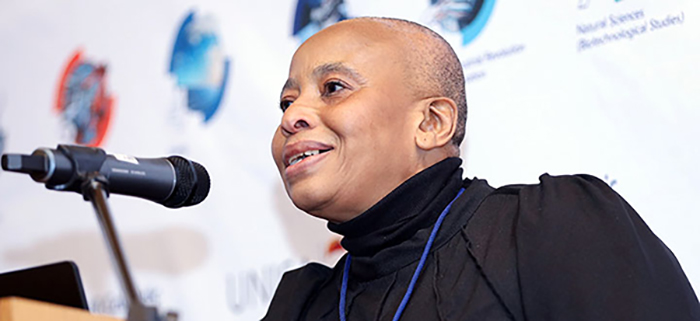
Zilungile Mkhize-Kwitshana, Distinguished Professor in Biomedical Sciences at Unisa’s College of Agriculture and Environmental Sciences
On 31 July 2025, experts in biotechnical studies gathered at Unisa during the Catalytic Niche Area Research Symposium, to discuss Catalytic Niche Area 7: Biotechnological studies, themed Translating natural science and biotechnology research into impactful solutions — The role of universities in addressing South Africa’s critical challenges, chaired by Zilungile Mkhize-Kwitshana, Distinguished Professor in Biomedical Sciences at Unisa’s College of Agriculture and Environmental Sciences.
In his opening address, Ben Durham, Chief Director of Bio-innovation at the Department of Science, Technology and Innovation (DSTI), spoke on the theme Unisa catalysing biotechnology and health research that results in tangible, community-level impact for the critical health challenges facing the country. He began by outlining South Africa’s Bioeconomy Strategy 2030, which sets out to be a significant contributor to the country’s economy by 2030, by ensuring that there are novel industries, including bio-based services, products and innovations, and technologies to support established companies, including small, medium and micro enterprises (SMMEs) currently in the biotechnology field.
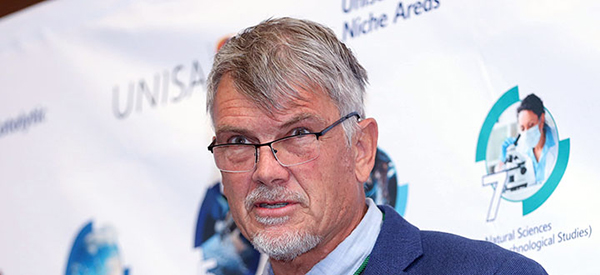
Ben Durham, Chief Director: Bio-innovation: DSTI
Durham said the DSTI focuses on strategic programmes that include agriculture, health, industrial and environmental biotechnology, and indigenous knowledge-based technology innovation.
Delving deeper into the challenges of South Africa’s healthcare system, Durham outlined the top causes of death in the country, which include HIV/AIDS, cerebrovascular diseases, tuberculosis and mental health issues. "They remain a significant challenge," he added.
Furthermore, he revealed that SA spends 8% of its GDP on healthcare, that 70-80% of medicines in the country are imported, and that 98% of South Africa’s active pharmaceutical ingredients are imported. He continued: "What South Africa does is to fill and finish – we import raw materials, put them together and package them. In other words, we are not great at manufacturing our own medicine. Additionally, as much as 70% of drugs do not work precisely as prescribed. They may have minor or major side effects, or compound the problem a person is being treated for."
Durham said that only 15% of South Africans have healthcare insurance or medical aid, while as many as 84% rely on the public health system. "We are aware that the universal National Health Insurance (NHI), still in its implementation phase, is likely to increase public healthcare spending, but the long-term benefits are to reduce individual costs so that the government can save in public sector spending," he stated.
Concluding, Durham said South Africa needs to look at ways to alleviate the duress on the healthcare system, which includes
Speaking next, Dr Nhlanhla Msomi, Director of Innovation and Commercialisation at the University of KwaZulu-Natal (UKZN), began by stating that Unisa is well-positioned towards crafting an action plan geared at tackling the Global South’s health crises, adding: "Most of our research is anchored by science and technology derived from the Global North, and therefore reflects the North’s ambitions and needs, and a blanket approach that is not reflective of the Global South. With its established global footprint, Unisa is well-positioned to develop locally relevant solutions and address the Global South's specific health challenges, especially through the ongoing symposium dialogues."
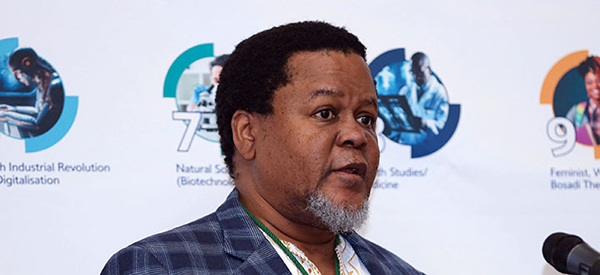
Dr Nhlanhla Msomi, Director: Innovation and Commercialisation, UKZN
Msomi said that the subject of health matters is not a biosciences problem. He explained: "The phrase excludes, among others, ideators, entrepreneurs, market analysts, industry experts and business incubators".
Msomi pointed out that his analysis described biosciences as an area that additionally serves as a catalyst for innovation and development that is integral to addressing challenges that include health, food security and sustainability.
Some of the key areas he identified are
Concluding, Msomi advised that part of consciously building a culture of innovation is to create awareness of the above-mentioned points within the university, while systematically developing new frameworks for commercialisation and governance that will solve real-world problems.
In her presentation themed Critical challenges in the cancer field in South Africa and priorities for research, Lisa Strydom, National Manager: Care and Support at the Cancer Association of South Africa (CANSA), said that the recent statistics from the 2030 South African Health Review stated that cancer accounts for 9% of adult mortalities, "but the burden of cancer cannot only be viewed from the mortality stats – it is actually the process of treating cancer patients which can take months or years, including those who are not terminal. This burden oftentimes carries psychosocial stress and economic burden on cancer patients and their family members."
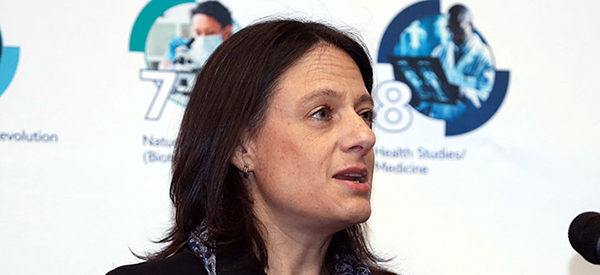
Lisa Strydom, National Manager: Care and Support, CANSA
Continuing, Strydom pointed out that lack of exercise, processed foods, alcohol and tobacco products have an impact on cancers, and infectious diseases linked with cancer. "This puts a strain on the public healthcare system," she added.
Strydom said that the biggest challenge South Africa has at the moment is the late-stage presentation of cancer by patients, as a result of not going for regular checks, and the pressure that stigma would put on them and their families. She explained: "This makes it much more difficult to treat and, in some cases, impossible to treat. This critical challenge underscores the urgent need for advancements in biotechnology and medical science. Future research must focus on developing innovative diagnostic tools for early cancer detection, particularly those that are accessible and affordable for a broader population."
The conversations on biotechnological studies underscored the significance of the use of translating natural science and biotechnology research into impactful solutions, and the role that universities must play in addressing research capacity and technologies centred on the Global South’s perspective, including the infusion of African-based medicine into the local supply chain.
* By Godfrey Madibane, Acting Journalist, Department of Institutional Advancement
** Photography by Mduduzi Khathamzi, Multimedia Centre
Publish date: 2025-08-14 00:00:00.0
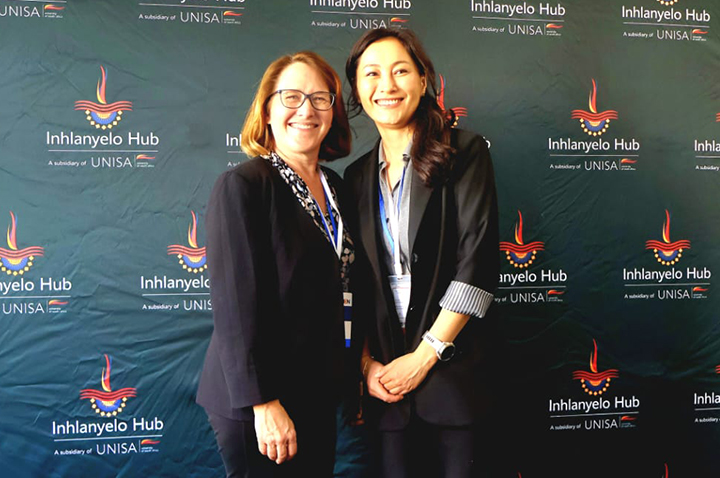 Unisa roundtable focuses on empowering SA women to lead in innovation
Unisa roundtable focuses on empowering SA women to lead in innovation
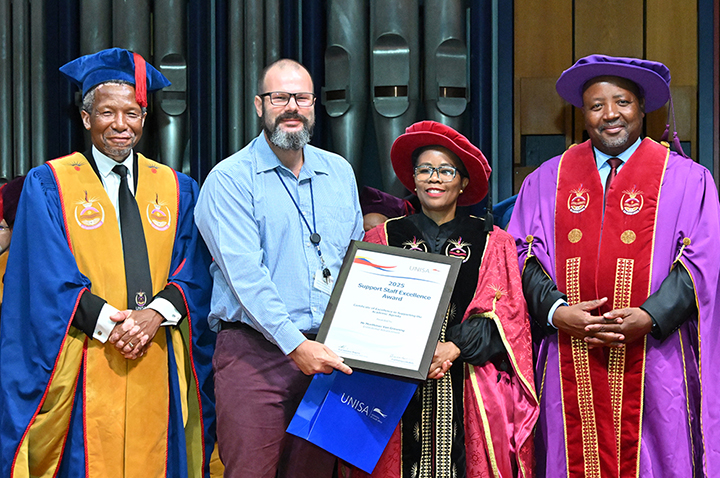 Unisan recognised for web excellence
Unisan recognised for web excellence
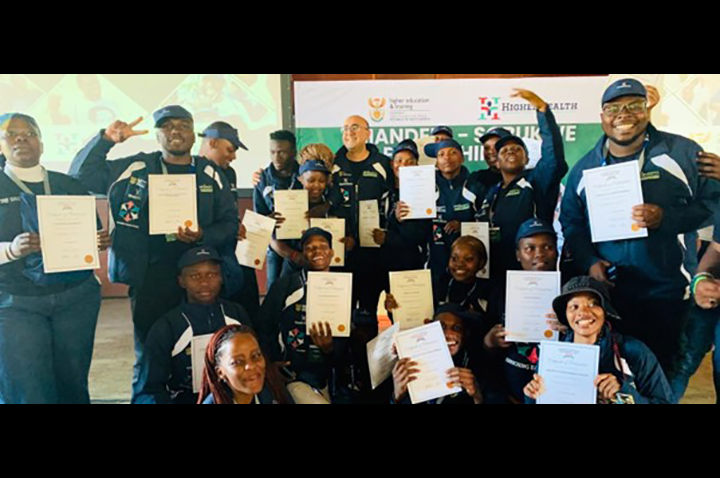 Office of the Dean of Students participates in leadership camp
Office of the Dean of Students participates in leadership camp
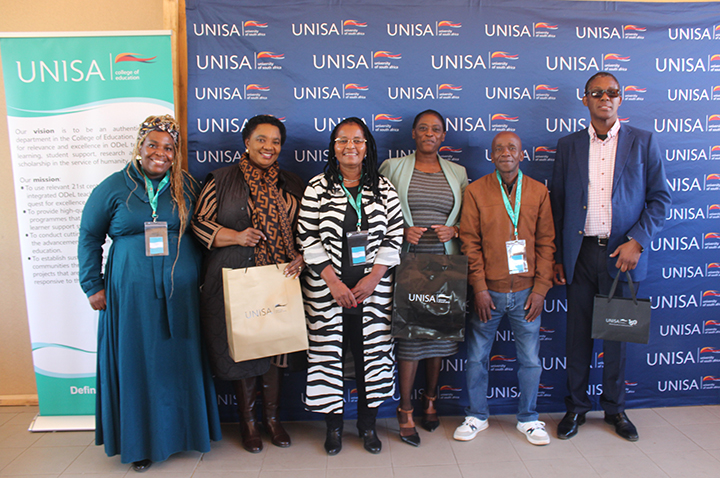 Unisa project fosters digital and pedagogical innovation in Limpopo schools
Unisa project fosters digital and pedagogical innovation in Limpopo schools
 Unisa student wins prestigious national leadership award
Unisa student wins prestigious national leadership award